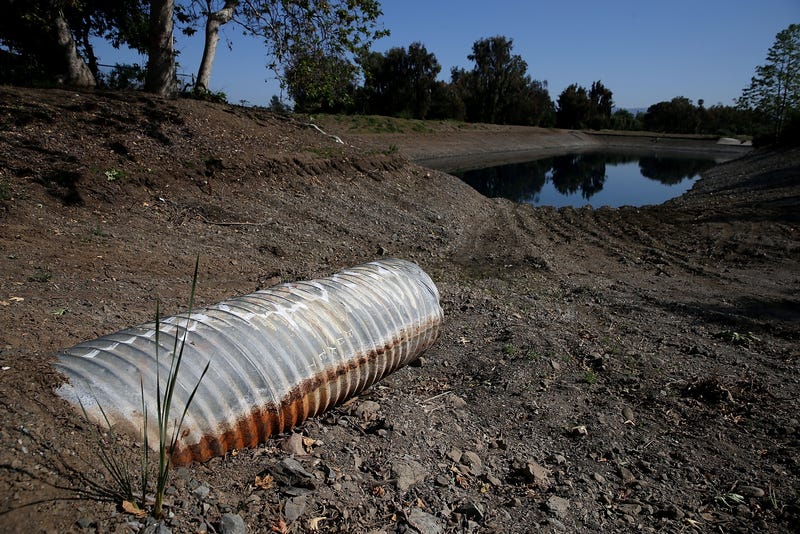
California's water woes are pushing the state to rely more heavily on pumped groundwater, but that's causing its own problems.
There have been longstanding concerns that wells could eventually run dry, but a new U.S. Geological Survey study released this week showed that running out of groundwater isn't the state's only problem.

That study examined water wells in the Central Valley and found the concentration of nitrate contamination from fertilizer increased during periods of over-pumping.
"Increased pumping during drought can speed up deterioration of groundwater quality," Zeno Levy, a research geologist at the agency, said.
Levy and the study's authors warned that cleaning up contaminated water can be costly, and some public drinking water wells could be shut down.
"During droughts, increased pumping can actually pull down this shallow contaminated groundwater to deeper depths in the aquifers that are commonly tapped for public drinking water supply," Levy said of the findings.
Ben Frech, Public Relations Manager with the National Groundwater Association, said in light of the study we need to make sure we’re putting in as much groundwater as we’re taking out moving forward. California and the federal government must invest "heavily" in aquifer recharge and reuse projects, according to the association.
"We have to make sure we have recharge plans," Frech said. "We have to make sure these things stay full, whether naturally or artificially, or we're gonna keep running into these problems."

